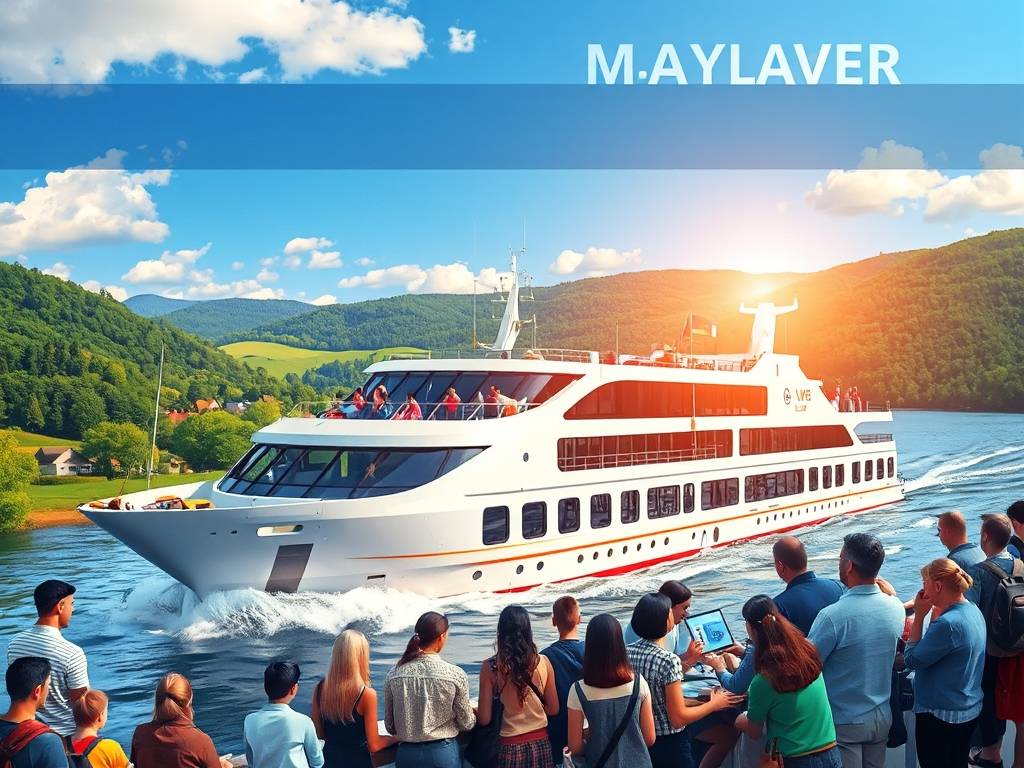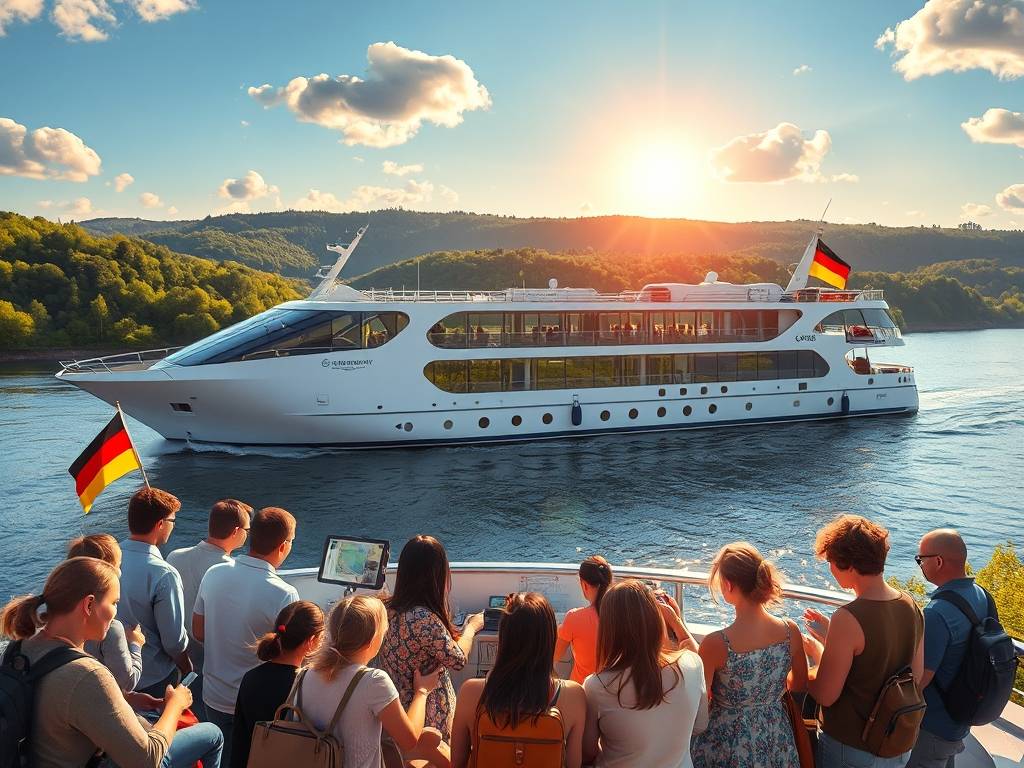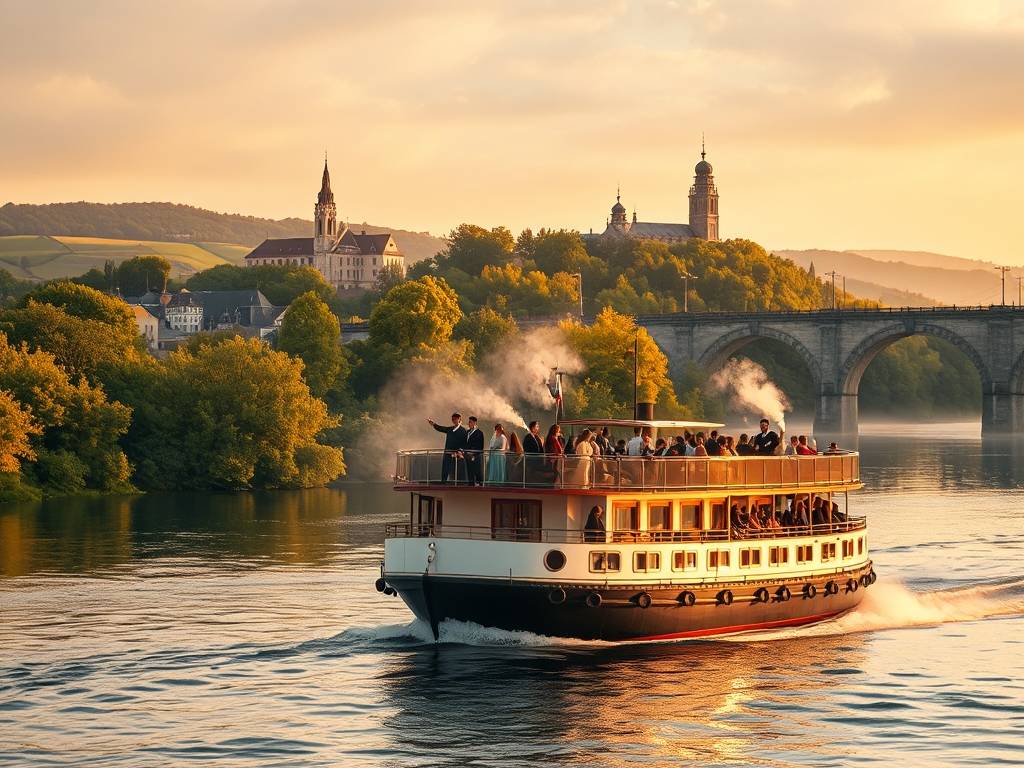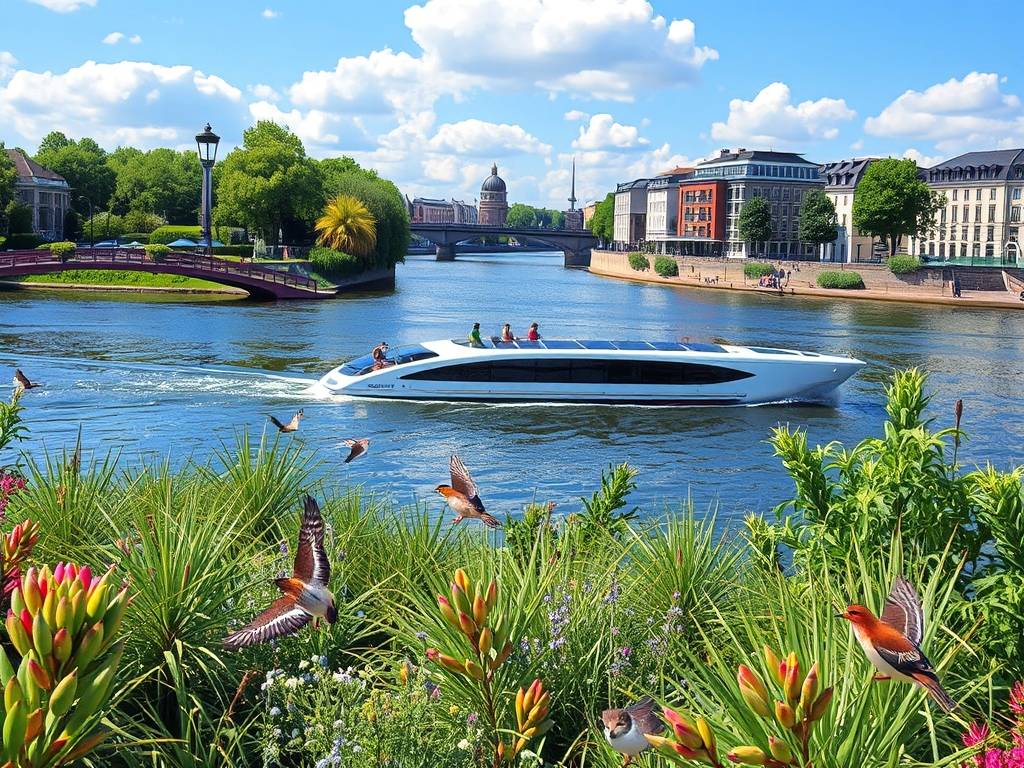Global Travel Information
Elbe River Educational Cruises: Learn While You Sail
The Elbe's Classroom Without Walls: A Journey Through History, Culture, and Ecology
The concept of travel as education is as old as Herodotus, yet it finds a uniquely potent expression aboard an educational cruise along the Elbe River. Unlike a standard holiday, an Elbe River educational cruise is a deliberate, immersive journey designed to transform the river from a mere waterway into a flowing, living textbook. It is a voyage that connects the dots between geography, history, art, and environmental science, all from the unparalleled vantage point of the water itself. As your vessel glides silently past castles, cities, and wetlands, you are not just a passenger; you are a student in a classroom without walls, where every bend in the river reveals a new chapter in the story of Central Europe.

The journey, typically traversing the scenic stretch between the majestic, baroque city of Dresden in Germany and the golden-spired capital of the Czech Republic, Prague (often with a coach connection to/from the Vltava, the Elbe's tributary), is a lesson in physical and human geography. The river itself is your first teacher. Originating in the Krkonoše Mountains, the Elbe cuts a path through the heart of Europe, eventually emptying into the North Sea. Onboard, expert geologists and naturalists provide context, explaining the formation of the Elbe Sandstone Mountains, which create the dramatic, picturesque scenery of Saxon Switzerland. Here, the cruise pauses, and you disembark to hike among towering, fantastical rock formations like the Bastei Bridge. This is not just a photo opportunity; it is a field trip into a Cretaceous sea bed, where 100 million years of erosion have sculpted a landscape that feels both ancient and alive. The lesson is tangible, the air crisp with the scent of pine, the textbook replaced by the very stone beneath your feet.

This geological foundation sets the stage for understanding human settlement. The Elbe has been a vital trade route since the Middle Ages, a liquid highway for salt, silver, and amber. This historical economic current is palpable in cities like Meissen, the first port of call for many. As your ship docks, the magnificent Albrechtsburg Castle, perched high above the river, immediately captures your gaze. Onboard lectures preceding the visit would have detailed the rise of the House of Wettin and the founding of Meissen as a strategic stronghold. But the true educational magic happens when you step into the Meissen Porcelain Museum. Here, the abstract concept of "European luxury goods" becomes concrete. You witness the very place where, in the early 18th century, alchemist Johann Friedrich Böttger, under the patronage of Augustus the Strong, discovered the secret of hard-paste porcelain, creating "white gold" that rivaled imports from the East. Seeing the artisans at work, their skills passed down through generations, connects the river's trade history to a living, breathing artistic tradition.
Sailing onwards, the curriculum deepens with the weight of modern history. The Elbe was a front line in the Cold War, and its banks bear silent witness to this divided era. Reaching Torgau, the experience is profound. It was here, on the damaged bridge over the Elbe, that American and Soviet soldiers famously shook hands on April 25, 1945, effectively severing Nazi Germany in two. Standing on that riverbank, with your ship in the background, a historian guide can paint a vivid picture of that moment of tenuous hope amidst the ruins of war. The river, once a symbol of connection, became a demarcation line—the border between East and West Germany for decades. This theme continues as you approach the former East German city of Dessau, home to the Bauhaus school of design. A tour of the Bauhaus Building is a masterclass in 20th-century art and architecture, illustrating a radical break from tradition and an embrace of functionalism that was, ironically, stifled by the very political systems the river came to represent. The cruise provides the chronological and spatial context that makes these historical juxtapositions resonate deeply; you physically traverse the landscape where these world-altering events and movements unfolded.
The cultural education continues in the Florence on the Elbe, Dresden. The city’s glorious skyline, dominated by the dome of the Frauenkirche and the spires of the Zwinger Palace, is a story of destruction and rebirth. Onboard, a lecture on the Baroque period and the reign of Augustus the Strong prepares you for the artistic treasures within. But the most powerful lesson in Dresden is a visceral one. Seeing the meticulously reconstructed city center, stone by stone, following its near-total destruction in the firebombing of 1945, is a poignant lesson in resilience, memory, and the human cost of conflict. It transforms history from a date in a book to an emotional understanding of loss and the enduring will to preserve beauty.
An educational cruise on the Elbe is not, however, solely focused on the past. A significant and increasingly vital part of the curriculum is ecology and environmental science. The Elbe is one of Central Europe's last major semi-natural rivers, with extensive biospheres and protected wetlands along its course. Onboard, marine biologists and environmentalists lead discussions about the European Water Framework Directive and the challenges of river management. You learn about the successful efforts to clean the Elbe since the industrial neglect of the Cold War era, which have allowed species like the sea eagle and the beaver to return. Cruising through the Elbe Biosphere Reserve, a UNESCO-recognized landscape of floodplains and meadows, you might join a guided bird-watching excursion from the ship's deck. With binoculars in hand, you identify migratory birds, understanding their role in this delicate ecosystem. This direct engagement fosters a profound appreciation for the river not just as a cultural artifact, but as a living, breathing entity that requires stewardship.
The pedagogical model of these cruises is their greatest strength. Learning is not passive. It is a multi-sensory experience. A lecture on viticulture is followed by a wine-tasting in the vineyards of the Elbe Valley, one of Europe's northernmost wine regions. A discussion on European Union integration and the Schengen Area is contextualized by the seamless sailing across what was once a heavily fortified border. The ship itself becomes a mobile seminar room, a place for conversation and reflection. Meals are shared with fellow learners—often a diverse group of curious travelers from around the world—and the discussions over dinner frequently continue the day's themes, enriched by a multitude of perspectives.
In conclusion, an Elbe River educational cruise offers a holistic form of learning that no static classroom or conventional tour can match. It weaves together the threads of geology, history, art, and ecology into a rich, coherent tapestry. It allows you to feel the chill of history in a Cold War relic, the awe of nature in a sandstone gorge, the inspiration of human genius in a porcelain workshop, and the quiet hope of an ecosystem reborn. You disembark not just with photographs and souvenirs, but with a layered, nuanced understanding of a region, having learned not from a single source, but from the river itself and the landscapes, cities, and people it has nurtured for centuries. You have, quite literally, learned while you sailed.
相关文章
- Elbe River Accessible Cruises: For Travelers with Disabilities
- Elbe River Eco-Cruises: Sustainable Travel on the Water
- Elbe River Historical Cruises: Explore Past Events on the Water
- Elbe River Wildlife Cruises: Spot Animals While Sailing
- Elbe River Scenic Cruises: Enjoy Beautiful Views Along the Way
- Elbe River Photography Cruises: Capture Stunning Shots
- Elbe River Wine Cruises: Taste Local Wines on the Water
- Elbe River Food Cruises: Savor Regional Cuisine
- Elbe River Beer Cruises: Enjoy Local Brews Along the Banks
- Elbe River Cultural Cruises: Immerse in Local Traditions
发表评论
评论列表
- 这篇文章还没有收到评论,赶紧来抢沙发吧~


